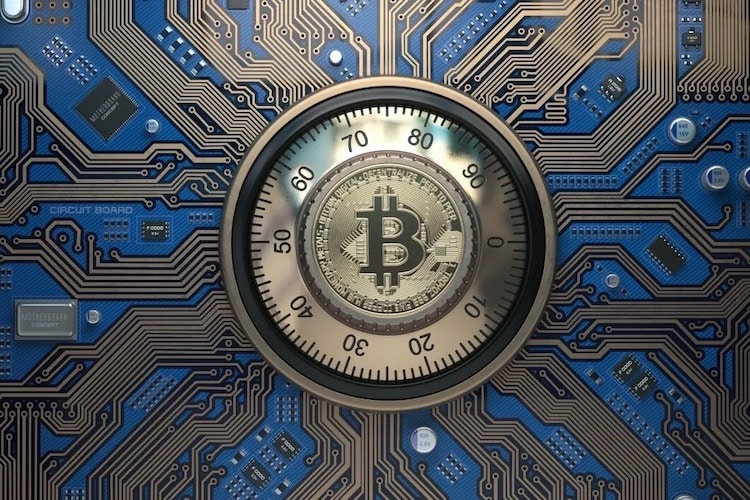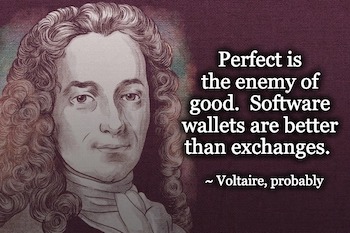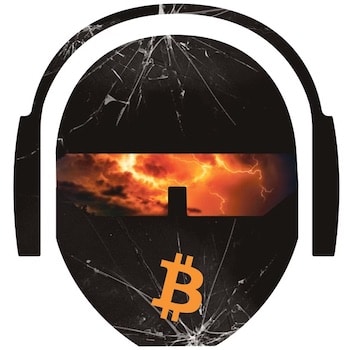The Very Basics of Bitcoin Self Custody

This article will likely piss off many purists who believe only in what I will call the gold standard. Others may be upset that I am only going to pay a passing mention to “multi sig”. Sorry guys this article is not for people that fully understand what is in it. It is not a mental masturbation piece so you can feel good about your decision to do things perfectly, etc.
Rather the recent fall of FTX has many of my listeners finally saying, “okay I get it, get off the exchange, but how, do I need to (insert a million options here)”. So I want to be as simplified in this answer as possible. If you want the actual tools I use, they can all be found here.
 You will note on that page that I say, “I do not seek perfection” simply to let people get started with bitcoin safely and to be on a path to learning as much as they want about controlling their own keys and having back up plans etc.
You will note on that page that I say, “I do not seek perfection” simply to let people get started with bitcoin safely and to be on a path to learning as much as they want about controlling their own keys and having back up plans etc.
There are more ways to do this, these are the most common and most accessible so for this article I will call them…
- The Gold Standard – Using a form of cold storage like a hardware wallet and doing it with your own node.
` - The Silver Standard – Using a form of cold storage like a hardware wallet and using someone else’s node.
` - The Bronze Standard – Using a software wallet like say Exodus, yet still holding your own keys.
Gold, Sliver and Bronze are my own terms here, apply only to this article and I don’t expect others to use them beyond that scope. Simply an analogy for this discussion nothing more.

Again I am writing this for the person with their bitcoin on Gemini, CoinBase, etc. right now scared shitless about yet another exchange folding or having their funds seized. Also equally scared shitless they will do something wrong and lose their coins in doing so. Paralysis by analysis types. So I will start with the bronze standard.
The Bronze Standard and How to do It
Simply choose a good software wallet that lets you hold your own keys. Install it on one of your devices. Again all the stuff I recommend is on my tools page. When you do you will need to back up your “seed phrase” this is a 12 word phrase that lets you recover your bitcoin if you loose access to your wallet. The provider of the wallet can’t help you if you lose this phrase, it is your “keys” and that is what self custody is, you hold them, no one else does. I like that a wallet like Exodus will FORCE YOU to prove you did write down the phrase and did so right.
Now use your wallet to create a “receive” address. Take that address and log into your exchange account. Click send and send yourself say 50-100 dollars in Bitcoin. This is to ensure your risk is reduced and give you the confidence that this is indeed safe to do.
Now you are thinking next he is going to say, send the rest of your bitcoin and you are done. Nope!
Now I want you to install that same wallet on another device, a computer, a mobile device, whatever. When you go through set up, select “restore a wallet” and you guessed it, enter that 12 word phrase. In a few moments the wallet will appear and that 50 bucks will be “in it” and on the same address. The first time a person does this a light bulb goes on that is even brighter than when you send them a bit of bitcoin. It all makes sense. “I have my keys, I can access my bitcoin from anywhere in the world”. More so you did it, so you have confidence. It is no longer just intellectual, rather it just became practical, a skill you now have and know how to do.
Now you choose how much to move per transfer and get all your Bitcoin off that damn exchange. Beware though, if you have this wallet on your phone and someone gets your phone, well they could just send all your bitcoin to themselves. The best way to manage this risk is make sure you use a pass code to lock the wallet and make sure that code is different then the one you use for the phone itself. I personally don’t keep more than say I keep in a checking account in a wallet like this, so we will move to the silver standard next.
Before I do I need to explain something, the term wallet is STUPID. Now we are stuck with it but it is a bad choice of words. When I say wallet you think of that thing you carry with credit cards, ID, cash held in it right? Things “inside” your wallet. A bitcoin wallet has no bitcoin inside it. All bitcoins are simply entries secured with public and private keys on the block chain. Your wallet is simply an “access device”.
Here is an analogy that may help. Say you install security cameras at your home and use an app on your phone to view them. You are at work and pull up your front door and see a person on your porch. Is that person “in your phone”, is the camera “in your phone”. That makes no sense right? You just access the camera with the app.
`
Your bitcoin is just entries on a ledger called a block chain. Your wallet no matter software, hardware, etc. is just a device that lets you access it easily. Just like that app that lets you pull up a camera and check on your house when you are on vacation. It isn’t exactly the same, just similar enough to hopefully help you understand it.
Which is why anyone who can get your keys can access your coins. I don’t care if you have it on a cold storage wallet with your own node, that does not change. 12 words are everything. Hence the gold and silver standards we are about to cover are more about device security than key security. If that sounds confusing, it’s okay, just don’t let it be an excuse. Do at least the bronze standard and do it NOW.
The Silver Standard and How to do It
Above in the bronze standard you may have thought, “wow that is as easy as say installing any old app and using it”. Then immediately thought “but shit if I leave my phone somewhere it seems risky”. GOOD. You just really started to get this. The next level up is using a hardware wallet. My favorite right now is the Trezor again you can learn about it on my tools page. But they all work basically the same.
A small device has the ability to make it easy for you to access your funds, just like the software wallet above. They key is that device is ONLY CONNECTED to the internet when you plug it in to use it. Otherwise it is say in a fire safe hidden in your house. Even if someone gets into that they need a password to access it. It is very secure that way. Still you have that 12 word phrase, if you lose it you can restore it but if someone gets it, they can too. Never forget that.
In this instance we are simply going to move our bitcoin from our software wallet to our hardware wallet. Now if someone gets say your laptop and you are running software that talks to it, (like say Exodus in conjunction with a Trezor) they may be able to get into your Exodus interface but no hardware wallet = no bitcoin. Done.
Now if you routinely receive or accept bitcoin in the world you can just use a different software wallet for that when you are out doing things. Again think of this like the money you can spend on your phone is like cash in your pocket or say a prepaid debit card. There is some risk that someone could get your device but that risk is mitigated by the amount. The hardware wallet is like money in a safe. A thief must first find the safe, then crack it. It is as secure as you are with the information required to do so. Even if a thief broke in, got into the safe and stole the wallet they now must figure out the pass code. Odds are you’d have tons of time to simply move the bitcoin before they did so, if they ever did so.
I should not have to say this but the passcode for your hardware wallet should be different than the passcode to your phone, PC, software wallet, etc. Also this should be backed up somewhere in case you forget it. It is true that you can still restore the wallet with the 12 word phrase but you just made a somewhat expensive hardware wallet useless.
 Is there any downside to this level? There are ways to be more secure we won’t go into. There are reasons to go to a gold standard and have the ability to really manage UTXOs (addresses) more actively for say tax purposes or additional privacy. None of that matters to me though if right now you are on CoinBase with 20K dollars worth of bitcoin.
Is there any downside to this level? There are ways to be more secure we won’t go into. There are reasons to go to a gold standard and have the ability to really manage UTXOs (addresses) more actively for say tax purposes or additional privacy. None of that matters to me though if right now you are on CoinBase with 20K dollars worth of bitcoin.
This second level is SO MUCH BETTER THAN AN EXCHANGE I’ll take getting you there. Frankly if you stay here, I find that 100% acceptable. So what you are using someone else’s node, it doesn’t matter. Remember you can always restore using any wallet with your 12 word phrase.
Say you use a Ledger hardware wallet and that company goes out of business and their nodes go away. Doesn’t matter you restore using a different wallet, move on and destroy & throw away that old wallet. So what life is good and your coins are safe.
I have simply accepted that 99% of bitcoiners are NOT GOING to run a personal node and I am okay with that. The silver standard is more like gold light to me, it is damn solid.
Note – I have heard great things about using the software wallet Electrum with Trezor but I have not done it myself yet. I use a wallet called Zeus attached to my node. Zeus requires running your own node there is no other option. Both of these options are beyond the scope of this article but I wanted to note this for some users who may already be looking to go a bit beyond my recommendations. The big reason I continue to recommend Exodus is they have fantastic support as does Trezor. For more on Electrum with Trezor visit this page.
The Gold Standard and why to do It
This one is going to be brief and more on the why you’d want to then the how to do so. To do this you will need your own node that is a device on the blockchain that participates in verifying all the transactions on the chain. In the simplest terms it will have the entire blockchain on it stored and each time a block is finished it will add that and say to the entire network, “I see it and I agree with everyone this is the current state of things”. This is not mining. All miners run nodes but most node runners are simply running a node not mining.
There are dozens of articles, videos etc. of how to set up a node. You can buy a node already configured or build your own. I won’t go into how or this article will be 50X longer than it is. The key is with your own node you can connect a hardware or certain software wallets to it. Now all your transactions run though your node, not a third party node.
Before you think this makes you into Jason Borne and lets you wire money to the CIA unseen, your transactions all still post to the block chain. Also if someone gets your 12 words they can still steal your bitcoin. So why do it? There are other reasons but if your new to all this here are the most basic reasons…
- You are helping to support and secure the network. The more active nodes on the network the more “checks” are being done to be sure everyone is honest. This is less important today than 12 years ago because so many people do it and mining hash is so high. Still it is true that more nodes is better for bitcoin.
` - You have a bit more privacy, sort of. When you use someone else’s node say Exodus’s node, they can see all transactions in and out. Even if you didn’t KYC there are many ways they could say “John Doe likely owns this wallet”. While you are secure as hell you are not very private. The risk is modest but there. It is always possible that such companies may be now or in the future might provide information to the government. If you bought on an exchange the government can likely link you to your addresses anyway though.
` - More on privacy. Often when you run a node and some more advanced options it is easier to clearly know which addresses are which. Meaning you can also do things like send only from addresses that you received to without buying from an exchange. This makes it harder to know you are who you are. This is an advanced strategy so I will leave it at that. This podcast episode goes deeper into such things.
`  More on Addresses and Taxation – The IRS says in any tax year you can manage by first in, first out or by UTXO (address) but you must pick one and stick with it for that tax year. Say I have bitcoin from 2013 that I bought for 600 dollars and some from 2021 I paid 45,000 dollars for.
More on Addresses and Taxation – The IRS says in any tax year you can manage by first in, first out or by UTXO (address) but you must pick one and stick with it for that tax year. Say I have bitcoin from 2013 that I bought for 600 dollars and some from 2021 I paid 45,000 dollars for.
`
Also say I need to sell/spend some. The best option then is to spend the BTC I bought for 45K assuming I have enough, lets say I do and I am going to spend one full bitcoin.
`
Today that bitcoin is worth about 16k, so I will take a loss of 29K on my taxes. If I use first in first out, I will pay a capital gain on 10K dollars. There are other advanced strategies in taxes like selling all losses and buying them back that are made easier by running your own node. Again this is an advanced tax strategy.
 A lot of you just got confused reading the gold standard and thought “well, fuck this, it is too hard”. Don’t do that, you don’t need it. Back up to what you are comfortable with, start there. If you simply get a software wallet, learn to restore using your phrase and use good basic security so someone getting your phone can’t set off on a vacation with 60K of your funds, you are so much better off then holding on an exchange.
A lot of you just got confused reading the gold standard and thought “well, fuck this, it is too hard”. Don’t do that, you don’t need it. Back up to what you are comfortable with, start there. If you simply get a software wallet, learn to restore using your phrase and use good basic security so someone getting your phone can’t set off on a vacation with 60K of your funds, you are so much better off then holding on an exchange.
If you want to move to the silver standard there is a reason I recommend Exodus and Trezor combined. They make is so easy. Again you can get links for both on my tools page and please use my links if this helps you as it does earn me a small commission on the Trezor sale.
However, just consider that the bronze standard (a software wallet) is as easy as installing any app or software and you just start using it. Getting a Trezor (I recommend the Trezor Model T for this) is as easy as ordering one and having it show up at your door. This is a good time to add ALWAYS buy your hardware wallets directly from the manufacturer.
So now you have Bitcoin in your Exodus and you are like this thing is slick (the user interface is) and I can make notes about where funds came from, etc. I like this. You are also thinking I need to move onto the Trezor and I might fuck it up, what do I do? Just watch this video they show you exactly how to do it.
This article and my podcast and site are bitcoin only. Exodus though is a multi currency wallet, just ignore the comments in the video about “ETH gas fees” unless they apply to you. The fee on your Bitcoin will be standard network fees to complete the move.
The beauty of the silver standard is you have a ton of security and control. Once set up you can send or receive directly into your hardware wallet, Exodus now serves as a bit of management software for it. Again for most people this is all you will ever need to do. If you want to go beyond great. If you want to set up multi sig with a partner company for added security fine. That is all beyond this article.
Lastly, there are people who are partial puritans. They don’t feel everyone needs a node but everyone MUST HAVE a hardware wallet. If you add eventually to that I am fine with it. Still a Trezor will set you back about 200 bucks in the end it is really an insurance policy against someone key logging your device or getting your device. It is only open to attack when plugged in or if stolen. Great! And if you have 50K in bitcoin, 200 bucks is .4% (4/10ths) of a percent of your holdings an it is a one time “insurance premium”.
With that ratio and long before it, I am with the puritans get a damn hardware wallet!
What if you have 800 bucks in bitcoin? Well we sit in the icy days of “Crypto Winter” with bitcoin at 16k and you got a lot of stacking to do! I would rather at this point you buy $200 more in BTC and put it on a software wallet and put getting a Trezor on your list to do at some point. But if you buy a Trezor now at 200 bucks, you just spent a premium of 25% for insurance.
Sorry I just don’t see the price to value ratio there. So when do you do it? My favorite answer is “it depends” and it is a personal choice. To me the answer is somewhere between a few thousand to about five thousand dollars. By then you know this is something you are going to do long term and the ratio makes sense for the added security.
In any event I hope this article answers more questions than it creates. That said if you have an additional question just ask in the comments below and in time I will answer any and all intelligent questions.
Now by God and all that is in the universe! GYBOTE
GYBOTE stands for get your bitcoin off the exchange. This article may not be perfect but it is designed to make it so anyone can understand the basics of at least moving to a software wallet, why that is so much better, how to back up things so you don’t lose your money and set the foundation to learn more as you chose to.
In other words it was written solely to remove excuses. Your excuses are gone! GYBOTE! NOW!
Lastly many of you who just read this could have written it yourselves. The issue we have is Bitcoin is a continuum of learning. Vets tend to use words and concepts that confuse new folks to the point of giving up. The Bitcoin community is amazing I don’t think most do this to sound smart we just have gotten to knowing what all these words mean and all the options there are. So consider sharing this with people trying to understand. It is again the sole reason I wrote it, imperfectly I admit.
* To learn about Bitcoin from the absolute beginning and even to see exactly how to buy, transfer it, etc. I recommend checking out our Bitcoin Fundamentals Series of Podcasts/Videos


Great article – easy to understand
First bullet point has a typo. The Gold Standard – Using a form or cold storage like a hardware wallet and doing it with your own node.
Got it thanks I am sure it isn’t the only one.
Thanks Jack, this is xavtly the kind of rundown I’ve been looking for.
Quick tax question. I have in my Exodus a certain amount of BTC that I started to DCA last year when BTC was $40k and climbing. I now am considering moving that money into an Unchained IRA. Unfortunately, I can’t just move BTC into the IRA. I must first concert to Dollars, then they can convert my Dollars into BTC inside the Roth IRA.
If I read this article correctly, now would be a good time to do that, as BTC has dropped significantly since I bought in, and I could get a decent tax break, yes?
Yes, you will declare a basis on what you sell, take a capital loss, then move it in convert back to BTC.
This is BEAUTIFUL to me. You take a loss then guarantee you never pay tax on a gain ever again.
Thanks Jack! Would it be even safer (and save some cash) to use Exodus to create the software wallet, get the 12 words and an address, delete Exodus from your laptop, and then use the address to send BTC to? The BTC would be stored on the address, you have your 12 words, and if you ever need to move it, just restore the wallet and go from there. Or is it still better to have a Trezor as the interface you are plugging into the laptop?
There are many reasons I wouldn’t do this. MANY. Here is the biggest, you’d be sending to ONE address over and over. So that lets anyone sending know how much you have on that one address. I create a new address for every transaction.
Problem two you don’t check on your wallet on occasion that way. You would not know if something is wrong.
Problem three now you only have the one back up, the hardware wallet is a second back up.
The cheap way is say to take an old phone that only works on wifi and is no longer being used as a phone. Install a softwallet, passcode protect it and then only connect it to wifi when you are using it. Old phones have a way of dying totally though.
I’d use a 79 dollar leger nano before either of these.
Thanks!
Today I set up my Exodus account! I have my keys, I have my coin
Just to be clear it is not an “account”.